CNC Milling Aluminum for Aerospace Applications
With the continuous advancement of aerospace technology, aircraft and spacecraft are placing higher demands on structural materials and processing techniques. Aluminum, due to its lightweight, high strength, excellent corrosion resistance, and excellent processing properties, has become a key material for aerospace parts manufacturing. CNC milling aluminum, with its high precision, high efficiency, and high repeatability, has become the preferred process for machining aluminum parts in the aerospace industry. This article will comprehensively explore the applications of CNC milling aluminum in the aerospace industry, including application scenarios and processing advantages.
1. The Importance of CNC Milling Aluminum in the Aerospace Industry
Aerospace structures are complex, placing extremely high demands on material properties, dimensional accuracy, and reliability. Aluminum, with its light weight, high specific strength, and ease of machining and surface treatment, is the material of choice for critical components in aircraft, helicopters, satellites, and drones. Compared to traditional milling processes, CNC milling aluminum offers the following advantages:
High-precision machining: Aerospace parts such as fuselage brackets, cabin components, and precision instrument mounting platforms typically require dimensional tolerances in the micron range. CNC milling relies on precise tool paths and machine control systems to achieve high-precision machining of complex curved surfaces and thin-walled parts. High Machining Efficiency: Multi-axis CNC machine tools can complete multi-surface machining in a single clamping, reducing errors caused by repeated clamping and improving production efficiency. For mass-produced aviation parts, CNC milling aluminum significantly reduces production cycle times.
Suitable for Complex Part Machining: Aerospace parts often have complex shapes, including curved surfaces, bevels, and spiral holes. CNC milling aluminum enables precision machining of complex structures through three-, four-, and even five-axis machining.
High Material Utilization: Chips generated during aluminum machining are easily recyclable, and optimized tool paths in CNC milling reduce material waste, aligning with the trend toward greener and more energy-efficient aviation manufacturing.
2. Main Applications of CNC Milling Aluminum in Aerospace
CNC milling aluminum has a wide range of applications in the aerospace industry, encompassing structural components, functional parts, instrument components, and more.
Aircraft Structural Part Machining: Aircraft structural parts include wing spars, fuselage frames, cabin brackets, and skin connectors. CNC milling aluminum can process complex cavities and thin-walled structures, ensuring lightweight and high-strength parts. Five-axis machining technology enables multi-faceted machining in a single pass, reducing clamping errors and ensuring the dimensional and assembly accuracy of aircraft parts.
Spacecraft Parts Manufacturing: Satellite and probe parts are often complex, high-precision components, such as satellite housings, instrument brackets, and antenna supports. CNC milling aluminum can produce parts with micron-level precision while maintaining material strength and rigidity, providing reliable structural support for spacecraft.
Engine and Power System Parts: Aircraft engine components require high-temperature resistance, high strength, and precise fit. CNC milling aluminum can be used to process blade brackets, duct housings, and heat dissipation structures, achieving precision machining of complex geometries while ensuring dimensional tolerances and surface finish.
Instrument Platforms and Precision Measurement Parts: Precision instruments, radar, and navigation equipment used in aerospace require high-precision support platforms and mounting bases. CNC milling aluminum not only ensures dimensional and geometric tolerances, but also enables the machining of complex curved surfaces, ensuring instrument measurement accuracy and stability.
UAV and Light Aircraft Parts: UAVs require extremely high lightweight and structural strength, and the fuselage frame, brackets, and connectors are primarily made of aluminum alloy. CNC milling aluminum can produce complex, lightweight parts, improving the flight efficiency and stability of drones.
3. Key Points of CNC Milling Aluminum Processing
In the aerospace industry, CNC milling aluminum processing relies not only on high-precision machine tools but also requires rational process design:
Tool Selection: Carbide and coated tools are commonly used for aluminum processing. Carbide tools offer excellent wear resistance during high-speed cutting, ensuring machining accuracy and surface finish.
Cutting Parameter Optimization: Aluminum is prone to tool sticking, so the cutting speed, feed rate, and depth of cut should be adjusted according to the aluminum grade. High-speed cutting combined with water-soluble cutting fluid can help reduce machining temperatures and prevent deformation.
Fixture Design and Fixturing: Aviation parts are often thin-walled and complex in structure, requiring custom fixtures or the use of vacuum or magnetic fixtures to ensure part stability and repeatable positioning accuracy during processing.
Multi-Axis Machining: Complex curved parts can be machined using three-, four-, or five-axis machining technologies, enabling multi-faceted machining in a single setup, improving machining accuracy and efficiency. Surface Treatment: After machining, aluminum parts typically undergo anodizing, sandblasting, or precision polishing to enhance corrosion resistance, surface hardness, and aesthetics.
CNC milling of aluminum plays an irreplaceable role in the aerospace industry. From aircraft fuselage components to satellite housings, from precision instrument platforms to drone mounts, CNC milling of aluminum provides solid support for aerospace manufacturing with high precision, high efficiency, and high repeatability. With the advancement of intelligent, multi-axis machining, and green manufacturing technologies, CNC milling of aluminum will play an even more critical role in aerospace part machining, providing strong support for the industry's goals of high precision, high reliability, and lightweighting.
Xinbanghui, a leading CNC milling aluminum processing company, specializes in CNC aluminum precision machining, serving a wide range of industries including aerospace, automotive, electronics, and precision instruments. Leveraging high-precision machining capabilities and a rigorous quality control system, we provide customers with reliable and efficient aluminum machining solutions.
Hot Product
Hot Product
-
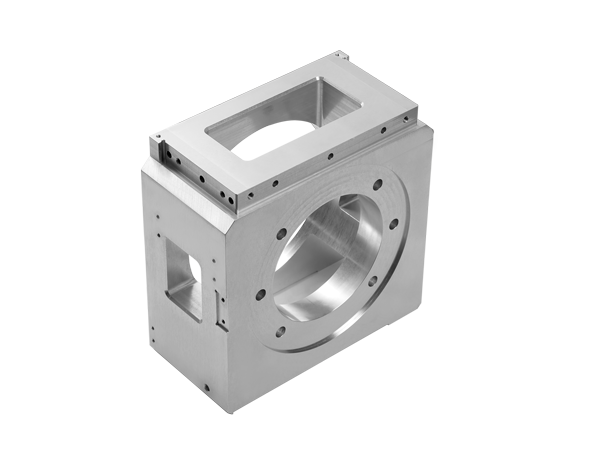 Bearing flange for medical equipmentRead moreBearing flange for medical equipment
Bearing flange for medical equipmentRead moreBearing flange for medical equipment -
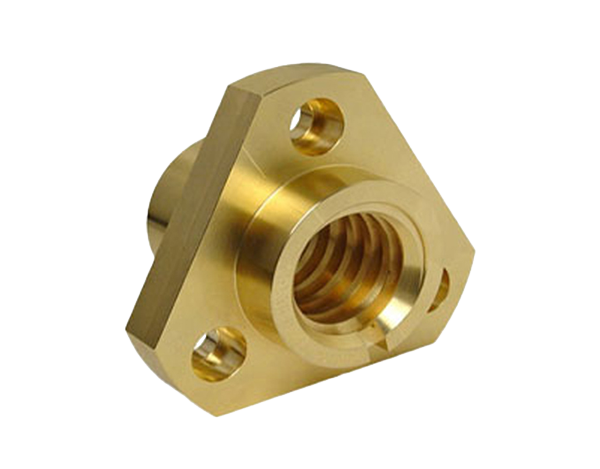 Turning and milling composite precision brass rod sleeveRead moreTurning and milling composite precision brass rod sleeve
Turning and milling composite precision brass rod sleeveRead moreTurning and milling composite precision brass rod sleeve -
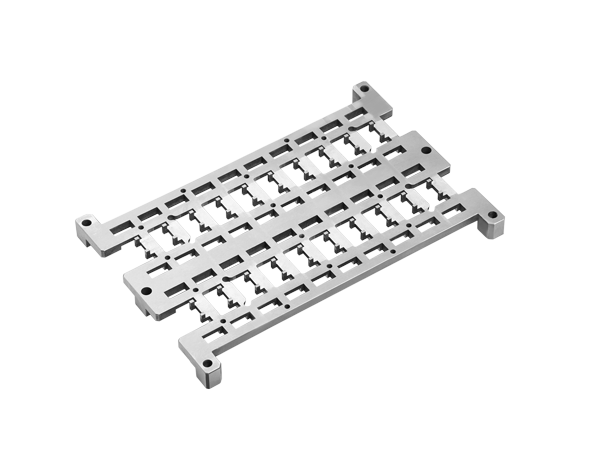 Precision milling of joint product toolingRead morePrecision milling of joint product tooling
Precision milling of joint product toolingRead morePrecision milling of joint product tooling -
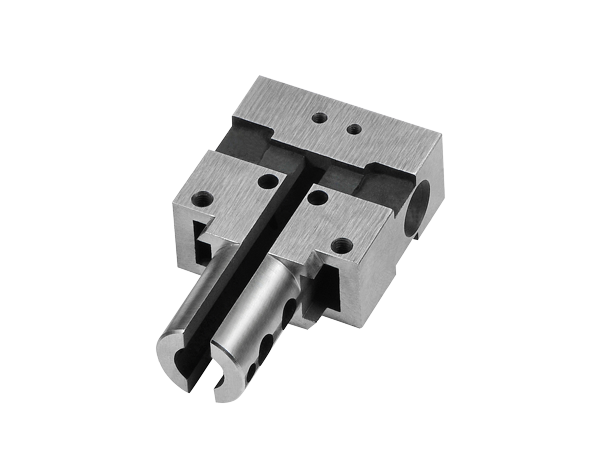 Automation equipment precision stainless steel suction nozzleRead moreAutomation equipment precision stainless steel suction nozzle
Automation equipment precision stainless steel suction nozzleRead moreAutomation equipment precision stainless steel suction nozzle -
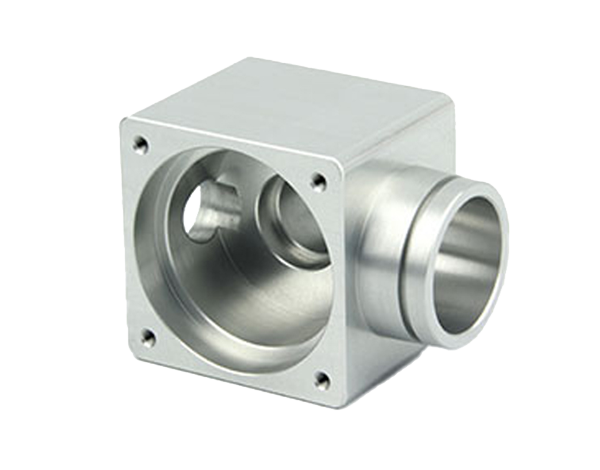 CNC titanium alloy precision square parts processingRead moreCNC titanium alloy precision square parts processing
CNC titanium alloy precision square parts processingRead moreCNC titanium alloy precision square parts processing -
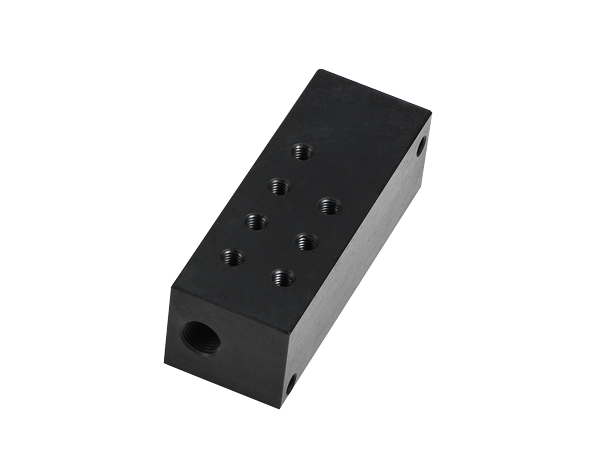 Medical device connector bracketRead moreMedical device connector bracket
Medical device connector bracketRead moreMedical device connector bracket
